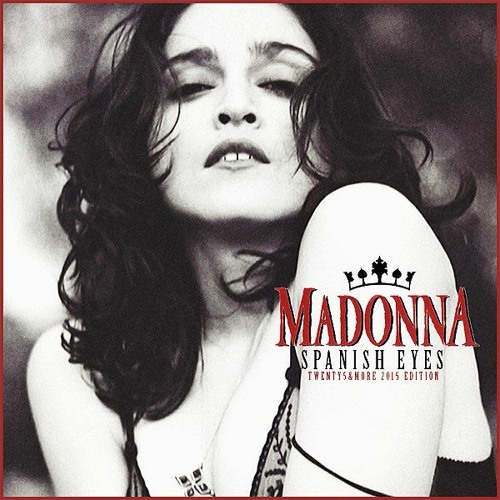
A Sensual Journey Through Desire and Vulnerability
When Madonna released “Justify My Love” in 1990, it was nothing short of a cultural phenomenon. The song, which appeared on her first greatest hits compilation album, The Immaculate Collection, debuted to a world that was both captivated and scandalized by its bold exploration of sensuality and intimacy. As the lead single from the album, it quickly ascended the charts, reaching the number one spot on the Billboard Hot 100. This achievement marked Madonna’s ninth number-one hit in the United States, further solidifying her status as the “Queen of Pop.”
Justify My Love is not merely a song but an experience—a provocative fusion of spoken word, whispering vocals, and a hypnotic beat that draws listeners into its seductive embrace. It was co-written by Lenny Kravitz and Ingrid Chavez, with Kravitz also contributing to its production. The story behind the song is as intriguing as its composition. Chavez, who was romantically linked with Kravitz at the time, had initially penned a love poem that served as the foundation for the lyrics. The song’s sultry, spoken delivery by Madonna was an innovative departure from her traditional singing style, showcasing her willingness to push artistic boundaries.
From its inception, Justify My Love was mired in controversy—a testament to its boldness. The accompanying music video was deemed too risqué for MTV and subsequently banned by the network due to its explicit content featuring themes of sexual exploration and liberation. This move only heightened public interest and discussion around the song. In a pioneering move for its time, Madonna responded by releasing the video as a standalone VHS single, which became an unprecedented commercial success.
At its core, Justify My Love delves into themes of longing, vulnerability, and the complexities of love and desire. It captures an intimate dialogue between lovers—one seeking affirmation and connection in a world where such emotions are often shrouded in taboo. The song’s refrain poses a haunting question: “Wanting, needing, waiting; for you to justify my love.” It’s a line that resonates deeply with anyone who has grappled with feelings of unreciprocated affection or sought validation in their relationships.
For many older listeners, revisiting Justify My Love can evoke memories of a time when music served as both an escape and a mirror reflecting societal norms. In an era marked by shifting attitudes towards sexuality and identity, Madonna’s daring artistry challenged conventions and invited audiences to confront their own perceptions of love and intimacy.
Listening to Justify My Love is akin to leafing through an evocative diary—each note and lyric unfolding like a page filled with whispered secrets and unspoken desires. Madonna’s performance exudes a raw honesty that is both disarming and alluring. Her ability to convey such depth of emotion through minimalist vocal delivery is a testament to her artistry and fearless exploration of new musical landscapes.
The impact of Justify My Love extends beyond its chart-topping success; it represents a pivotal moment in pop culture where music videos became an integral part of artistic expression rather than mere promotional tools. The song continues to be celebrated for its innovative approach and enduring influence on artists who dare to explore themes of sensuality and vulnerability.
In retrospect, Justify My Love remains an iconic piece that challenges listeners to reflect on their own experiences with love—its beauty, its complexity, and its power to transcend societal boundaries. For those who lived through its release or discovered it later in life, it serves as a nostalgic reminder of Madonna’s indelible impact on music and culture—a timeless journey through desire that continues to captivate hearts across generations.
